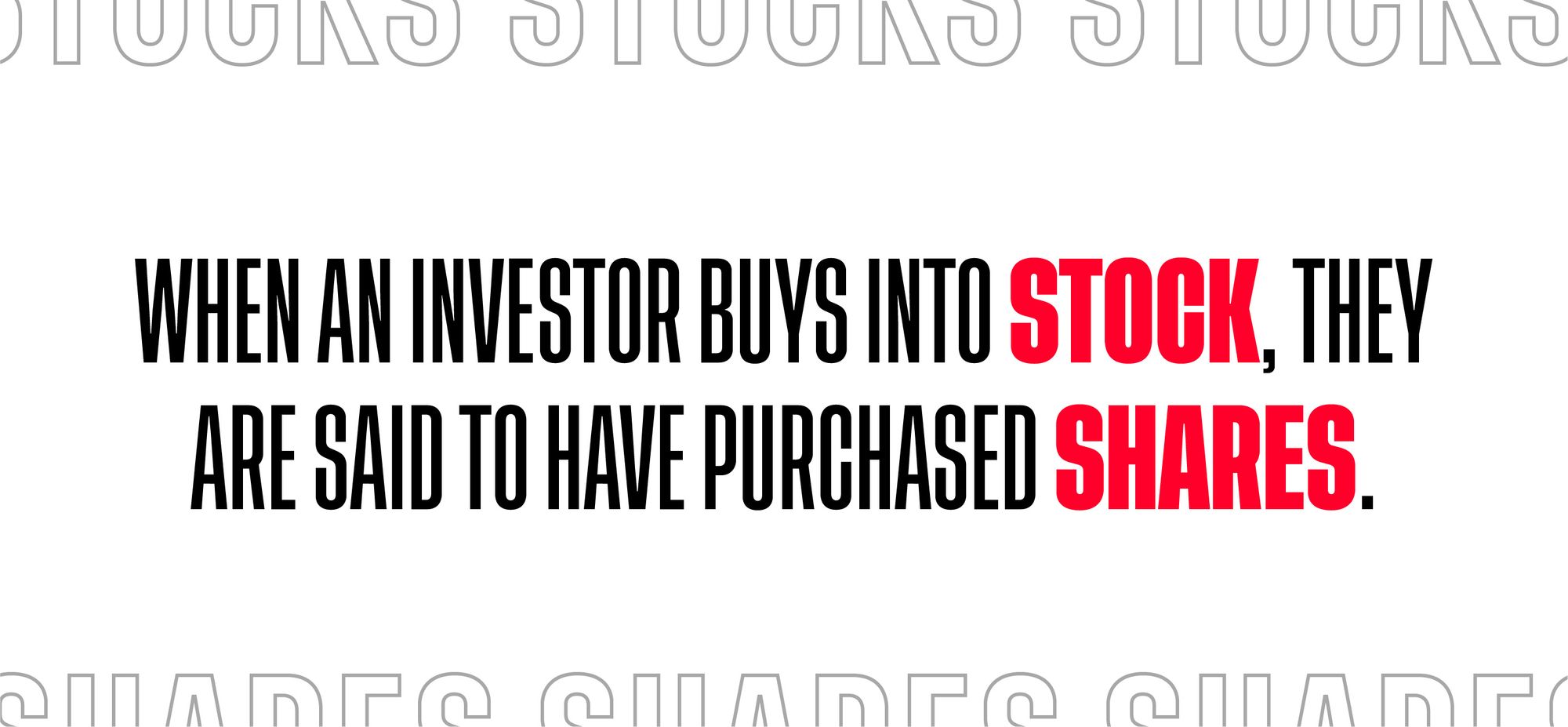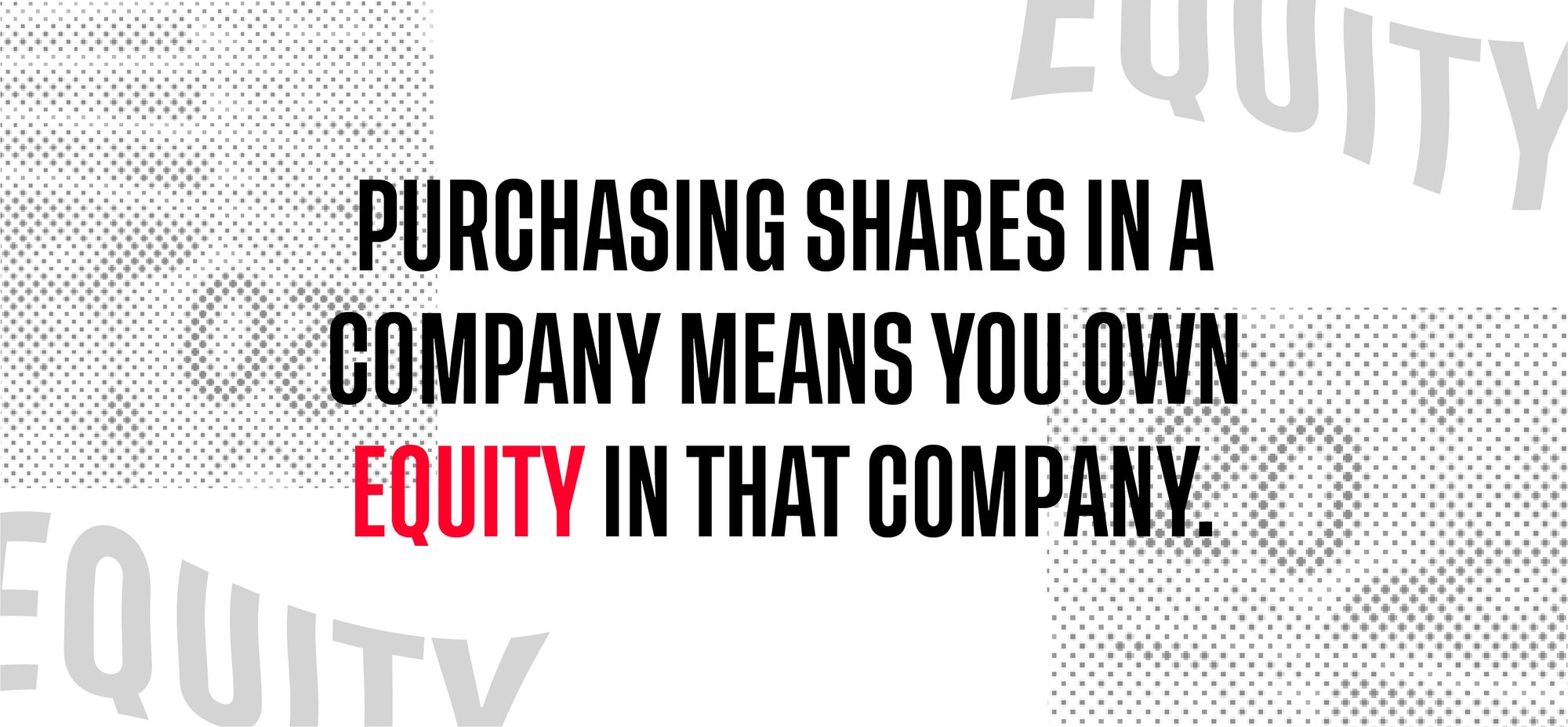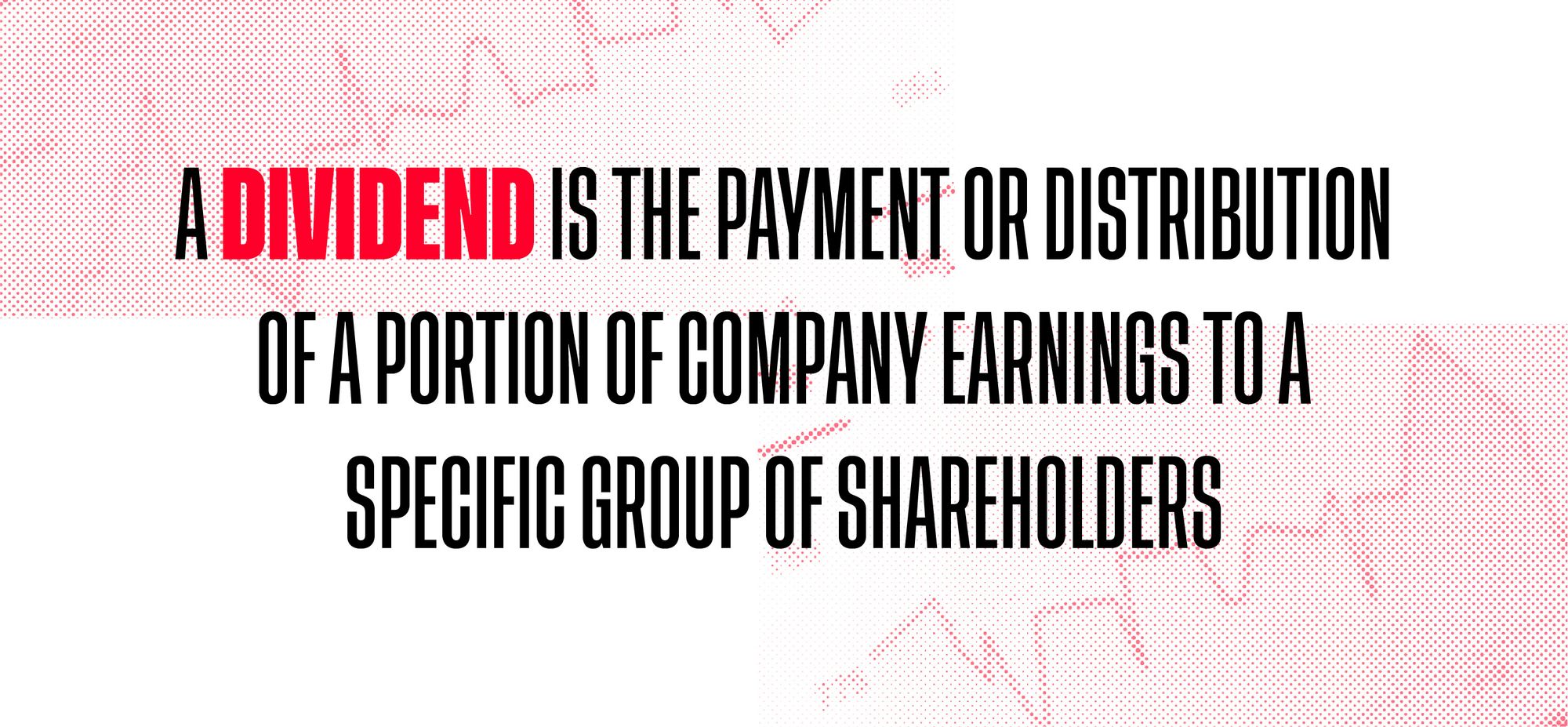What’s a Stock?
Stocks, shares, securities, equities, bonds… My brain hurts.
Hey friends, today we’re unpacking a term you’ve probably heard a million times before: stocks. Ah yes, the stock market. Naturally. Buying stocks, etc. Cool.
But do you actually know what they are? Really?
Let’s get back to basics! This explainer series unpacks common—and commonly misunderstood—terms so you can level up your financial vocab.
What’s a Stock?

When companies go public, they invite investment from private and institutional entities, thus becoming publicly traded. This investment occurs in the form of issuing stock. When an investor buys into stock, they are said to have purchased shares.
A stock is a security that, when purchased, represents partial ownership of that company. Owning stock means an investor also owns a proportional amount of that company’s assets and profits. Certain kinds of shareholders may be paid dividends, as determined by a company’s board of directors.
Simple, right?
Diving Deeper: Stock Terminology
Let’s unpack the terms we used in that last section.
What is Going Public?

Going public is a process by which a privately owned company becomes publicly traded on stock market indexes. The company makes an Initial Public Offering (IPO) where they offer the opportunity to purchase their stock. As investors purchase stock, they come to own a portion of that company and the profits it may turn in the future.
What is a Security?
A security is, simply put, a financial asset which you can trade. Stocks, bonds, and options are all securities—they all have value, and can be bought or sold.
What are Shares?
Units of stock called shares.
The stock of multiple companies is called, in the plural, stocks; purchasing shares of one stock refers to purchasing units of one single company’s stock.
“Share capital” refers to the value of all of a company’s shares.
What is Equity?

Company stock is equity. You may recognize this term from the context of home ownership. If you’ve paid off your $200,000 of your $500,000 mortgage, you own $200,000 of equity in your home (or maybe even more depending on your home’s value).
When it comes to stocks, purchasing shares in a company means you own equity in that company.
What are Dividends?

A dividend is the payment or distribution of a portion of company earnings to a specific group of shareholders. Dividends are rewards, little thank yous, for investing in the company.
Dividends are paid differently depending on the type of stock one owns.
Common stock entitles owners to vote at shareholder’s meetings and normally entitles shareholders to dividends. Preferred stock may not come with voting rights, but have priority over common stock shareholders when dividends are paid out.
How to Buy Stocks

Buying into the stock market can feel like a confusing and daunting task, in part because the financial system can be so opaque. It is difficult to understand how it all works, plain and simple.
If you’re interested in purchasing stocks, you have two primary options to consider: finding a broker or using a robo-investor.
Brokerages are staffed by people that trade stocks for a living, and who can help you oversee your financial portfolio (your collection of investments). They’ll charge a fee for managing your money.
Robo-advisors come in many forms, including websites and apps. These advisors allow you to buy and sell stock yourself in-app, or to opt into preset portfolios. Generally, this service is less costly than hiring a broker—but opting for robo-advising means you can’t usually pick up the phone and get tailored advice very easily.
When choosing which option is best for you, be sure to do thorough research and consider your financial values and goals. If you want a partner in investing, someone you can develop a relationship with and whose judgement you trust, opt for a broker. If you want something more affordable, consider a robo-advisor.
There you go, friends. This has been a crash course in stocks. Now go out, continue your research, and invest wisely!
This blog is provided for informational purposes only, isn’t intended as investment advice, and isn’t meant to suggest a particular investment or strategy is suitable for any particular investor. If you’re unsure about an investment, you may wish to obtain investment advice from a qualified professional.